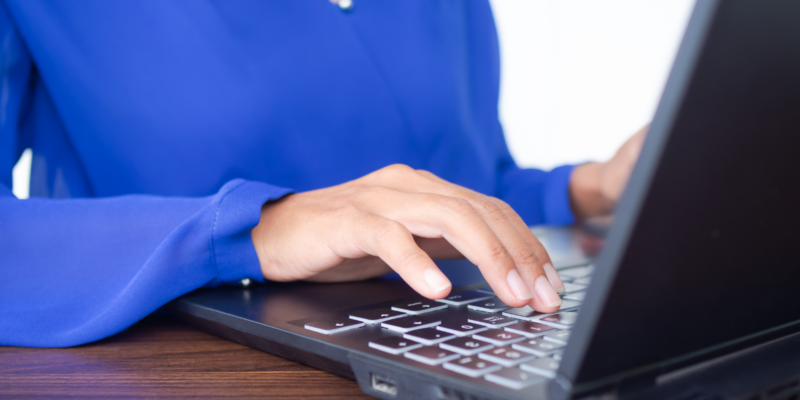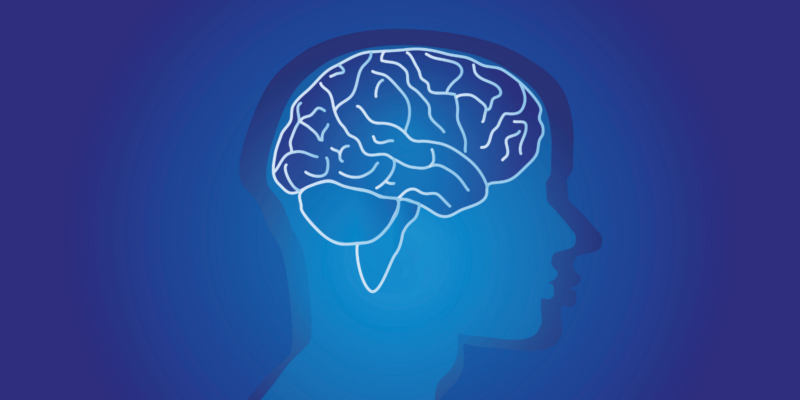(Published April 7, 2020. Updated April 26,2020)
Are You At A Higher Risk For Coronavirus Infection?
Does having an autoimmune condition mean that you are at a higher risk for coronavirus infection? The truth is we do not know as of now. The coronavirus, which is responsible for the present pandemic is very new. Therefore we do not have enough information yet. (A pandemic is a disease outbreak that occurs in a large geographical area).
In general, there is a higher risk of all infections in people with autoimmune conditions.
There are 80-100 different autoimmune conditions. While the risk of infection in all autoimmune conditions may not be known, several studies have indicated that people with autoimmune conditions like rheumatoid arthritis, psoriasis, lupus, are at a higher risk for all infections in general, particularly influenza and respiratory infections. ((Ref)) ((Ref))
Covid 19 and Coronavirus infection: Terms first.
Covid 19 is the disease caused by the SARS CoV 2 virus. The number 19 is from the first cases being reported from China in 2019 (December)
The name of the virus is SARS CoV2: Severe Acute Respiratory Syndrome Coronavirus 2.
Why having an autoimmune condition may increase your risk :
We don’t know the specific causes, however a few important factors are
- Associated chronic diseases
- Medications
Associated chronic conditions: Autoimmune conditions are rarely alone!
How many of you have only one disease? Many of you have a combination of different diseases (comorbidities, in medical parlance). You may have one or more autoimmune conditions (for example Hashimoto’s/Hypothyroidism, RA or psoriasis), with high blood pressure, heart disease, stroke, diabetes and “cholesterol problems”
Regardless of the present coronavirus pandemic, those of you who have an autoimmune condition are anyway at a higher risk of heart disease and stroke. ((Ref))
Why is this relevant? High Risk for Severe Covid 19 infection.
In the initial studies coming from China and Italy, it was found that the coronavirus infection was severe in people who had the following conditions (Image) : ((Ref)) ((Ref))
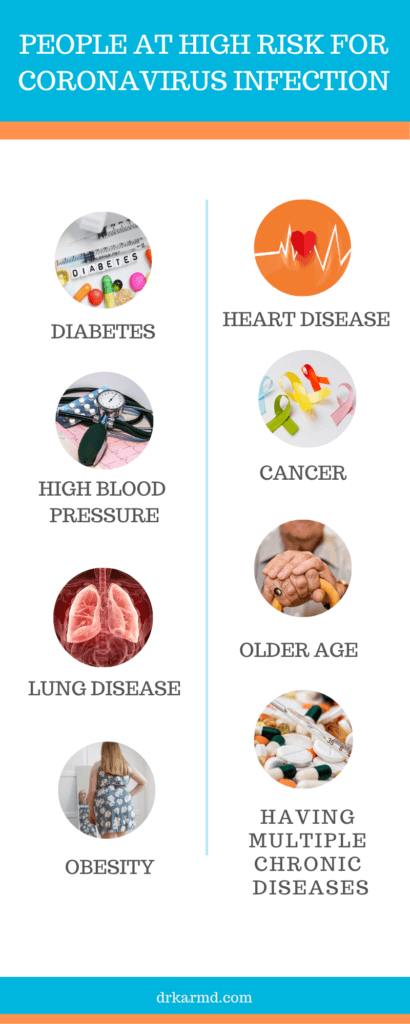
The early papers on Covid 19 did not report an increased number of associated autoimmune conditions. However, what we don’t know is whether they were absent or not looked at.
From the list above it is evident that many of the conditions have overlapping features. If you have diabetes, you are are a higher risk for all infections, heart disease, stroke and dementia. Chronic inflammation is another added common factor.
Additionally, smoking has several adverse effects on health, but chiefly it impacts lung function. The lungs are the commonest organs affected by the coronavirus. Smoking is also considered a trigger for Rheumatoid Arthritis.
Among the unfortunate people who died of Covid 19, almost all had acute respiratory distress syndrome. Additionally, irrespective of previous heart disease, heart failure and heart injury was common amongst those who died. ((Ref))
Medications
Can your risk for Covid 19 change because of your medications? What are some of the medications to consider?
- Blood Pressure Medications
- Ibuprofen
- Corticosteroids
- Other medications used in autoimmunity
Blood Pressure Medications And Covid 19
Blood pressure medications commonly fall under the following categories:
- A- ARBs (Angiotensin Receptor Blocking) and ACE Inhibitors (ACEi)
- B- Beta-blockers. Examples are atenolol, labetalol.
- C-Calcium channel blockers, like amlodipine, nifedipine
- D-Diuretics or water pills.
What is the relation between ARBs , ACE i and Covid 19?
It was discovered that the Covid-19 virus binds to the ACE-2 receptor to gain entry into cells. This, together with concerns based chiefly on animal studies, that ACE inhibitors and ARBs may increase expression of ACE-2, has raised concerns that the use of these medications may raise your risk for Covid 19. But other research shows that by reducing angiotensin 2 levels, these drugs may protect against lung injury in patients with COVID-19.
Names Of ACE Inhibitors And ARBs
| ACE INHIBITORS | ARB S |
| Enalapril | Losartan |
| Lisinopril | Candesartan |
| Ramipril | Valsartan |
| Perindopril | Irbesartan |
| Telmisartan | |
| Olmesartan | |
| Azilsartan | |
| Fimasartan |
Do Not Stop Your BP Medications!
If you are taking any of the medications listed above (or other ARBs and ACEi) please do not stop your medications without recommendations from your doctor. Having high BP is a very important risk factor for Covid 19. Therefore it is extremely important to maintain normal BP at this time. When changing medications, it is very important to monitor your BP and consult your doctor more often. If your doctor is not available for a tele-consult or phone call, then that is a problem you don’t want!
Below is a summary of recommendations from major heart organizations around the world.

Clinical Study Shows Use Of ACE inhibitors and ARBs Does Not Increase The Risk Of Death In Patients with Covid 19.
In a study from China, reported on April 23, they did not find any difference in death rate or worse disease in people with high blood pressure and Covid 19, who were taking ACEIs/ARBs compared with those not taking these medications. ((Ref))
Ibuprofen
There have been several unconfirmed reports in the media that the painkiller medication ibuprofen may adversely impact your risk for Covid 19. This prompted the World Health Organization to issue a directive about ibuprofen.
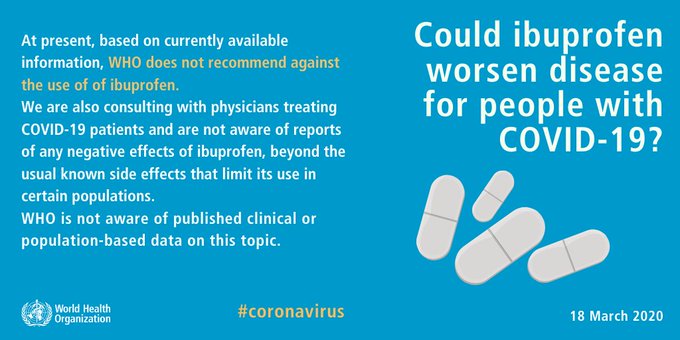
Corticosteroids and other medications.
Many of you have been prescribed steroids for your autoimmune condition. Or you may be on immunomodulatory drugs like methotrexate, azathioprine, tacrolimus (and many more). The concern arises because of the impact of these medications on the immune system.
This is not the time to change your medications unless advised by your doctor. These are early days yet and therefore we do not know enough about the impact of these medications on your Covid 19 risk.
BOTTOMLINE: Do not stop or change your medications without your doctor’s advice.
Is Covid 19 a trigger for autoimmunity?
Many autoimmune conditions are triggered by infections, viral or bacterial. ((Ref)). Therefore, will a coronavirus infection trigger an autoimmune condition later? The truth is we don’t know. It is still early days.
Guillain-Barré syndrome (GBS) and Covid 19:
However, there is one recent case report from China, where a 61-year-old woman presented with Guillain-Barré syndrome (GBS). (GBS is an autoimmune condition affecting the nerves, usually presenting with muscle weakness and sometimes, paralysis.)
On day 8 of her admission, she developed respiratory symptoms and tested positive for the coronavirus. Neurological symptoms for coronavirus have not been reported before. She recovered and was discharged from the hospital on day 30. ((Ref))
How Does the Coronavirus Spread?
It has been established that the coronavirus SARS CoV 2 spreads through respiratory droplets from coughing or sneezing or from close contact like touching or shaking hands and from touching something with the virus on it and then touching your nose, eyes or mouth before washing your hands.
However, a few other ways of transmission are possible as well.
Asymptomatic carrier
This is someone who harbours the virus but has not experienced any symptoms of coronavirus infection. The danger lies in that he/she can still transmit the disease to another person without being aware that he/she harbours the virus. ((Ref))
Fecal-oral Transmission (contamination of food by stool from infected people).Water-borne.
In the first Covid 19 case reported in the US, the patient had tested positive in blood as well as in stool. He had presented with respiratory symptoms but had complained of loose stools as well. ((Ref)) ((Ref))
In a study reported recently, they sampled human wastewater at Amsterdam’s Schiphol Airport. The samples tested positive for the CoV 2 virus. This could be explained by virus excretion from symptomatic and asymptomatic individuals passing through the airport. ((Ref))
If you drank water contaminated by the virus, you can get the disease. This is not a major cause for concern where drinking water is treated before use. Unfortunately in some countries around the world, water-borne diseases are still a major problem. This is why travel advisories in some countries recommend against drinking untreated tap water.
Pregnant mother to child .
Can a pregnant mother with Covid 19 transmit the infection to her baby? There are two areas of consideration here. One is the transmission of the virus when the baby is still in the uterus (vertical transmission) and the other is an infection in the newborn from close contact with the mother after birth.

(Coronavirus image by Fusion Medical Animation )
A paper in JAMA Pediatrics looked at 33 babies born to mothers who had Covid 19 in Wuhan in China. Three of the 33 babies presented with early symptoms of Covid 19. The babies did fine, though one was born premature and had more severe disease. The severity may have been from prematurity rather than the Covid 19. The paper suggested that the infection in these 3 babies were likely from the mother. ((Ref))
However, a few other papers have indicated otherwise. ((Ref)) ((Ref))
Universal screening for all pregnant women admitted for delivery?
In a paper from New York City, where they tested all the women admitted for delivery. This included women who did not have any symptoms. ((Ref))
29 of the 33 women who tested positive for SARS CoV2 did not have any symptoms of Covid 19.
BOTTOMLINE: Should all pregnant women be tested for SARS CoV 2? You should follow your doctor’s recommendation. There is no doubt that all pregnant women with Covid 19 symptoms should be tested. But some may not have any symptoms at all and still have the virus in their blood.
What are the uncommon symptoms of Covid 19?
All of know the common symptoms of Covid 19.
- Fever
- Cough
- Difficulty breathing
- Sore throat
- Runny nose
- Dizziness
- Flu-like symptoms
- Headaches
Some uncommon symptoms of Covid 19 are
- https://www.entnet.org/news/covid-19-anosmia-reporting-tool-initial-findings/oss of sense of smell (anosmia) and dysgeusia (lingering unpleasant sensation in the mouth) have been reported by some people with Covid 19. This prompted the America ENT Academy to propose that these symptoms be included in screening for Covid 19. ((Ref)).
- Nausea, vomiting, diarrhea. In a pre-print paper, which means it is not the final version, it is apparent that some people may have predominantly gut-related symptoms. ((Ref))
- Chest pain. As mentioned before, Covid 19 may be more severe in people with pre-existing chronic diseases like heart disease, high blood pressure etc. However, a few people with Covid 19 have presented with chest pain without fever. ((Ref))
- “Pink eye” / red eye/conjunctivitis. In a case series of 38 patients from China, it was reported that about one-third of them with Covid 19 had redness of the eyes and increased eye secretions. ((Ref))
Is there a vaccine for Coronavirus?
The simple answer is not yet. However, the race to develop a vaccine is progressing rapidly. The Bill and Melinda Gates Foundation has donated generously to help this. The company Inovio announced on April 6, 2020, that their vaccine is entering a phase 1 clinical trial (trials in humans). ((Ref)). However, a vaccine for everyone may be about 12-18 months away.
Should you use a mask?
CDC (Centers For Disease Control and Prevention) now recommends the use of cloth masks to prevent the spread of the coronavirus. This became important when it was apparent that asymptomatic people can spread the disease as well. Using a mask in public, even if you do not have symptoms of Covid 19, is a service to the community. Using a mask along with handwashing and physical distancing will go a long way to reduce the spread of covid 19. ((Ref))
What Can You Do?
Home monitoring of blood pressure: I have suggested to many of you that besides getting an ambulatory 24 Hour BP monitoring test done, you also need to track your BP at home, using a home device. Some of you have postponed that because it is not convenient to check your BP in the office.
Home BP monitoring is sometimes more accurate than a single measurement at your doctor’s clinic. You rush in, have no time to sit still for the prescribed 5 minutes and definitely no time for the average of 3 readings…….all this leads to less than accurate measurements.
How about measuring your BP morning, at noon and at bedtime for 2 weeks every day? Make sure you use an app to export the data or an xls spreadsheet. Then you can see your trends easily. One Android-only app is https://bp-journal.firebaseapp.com/
iOS users free app https://apps.apple.com/us/app/id1439949661?mt=8
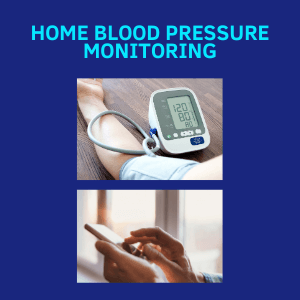
Sleep: Prioritize sleep. Sleep loss adversely affects your resilience. Focus on regular bedtimes and wake-up times. Aim to get 7-8 hours of sleep every night.
Eat: Eat real food, preferably low carbohydrates, no sugar, and no vegetable oils. Essentially anti-inflammatory food.
Move: It is very easy to watch TV continuously or sit with your computer/tablet/phone since you are mostly home. How about setting a goal to increase your daily step count?
Mind-Body Interventions: How about starting a mindfulness practice now if you have never done it before? Mindfulness has shown beneficial effects on the immune system. ((Ref))

Watch your device use: Do you really need to read all those WhatsApp forwards or a minute-by-minute update of the negative news?

